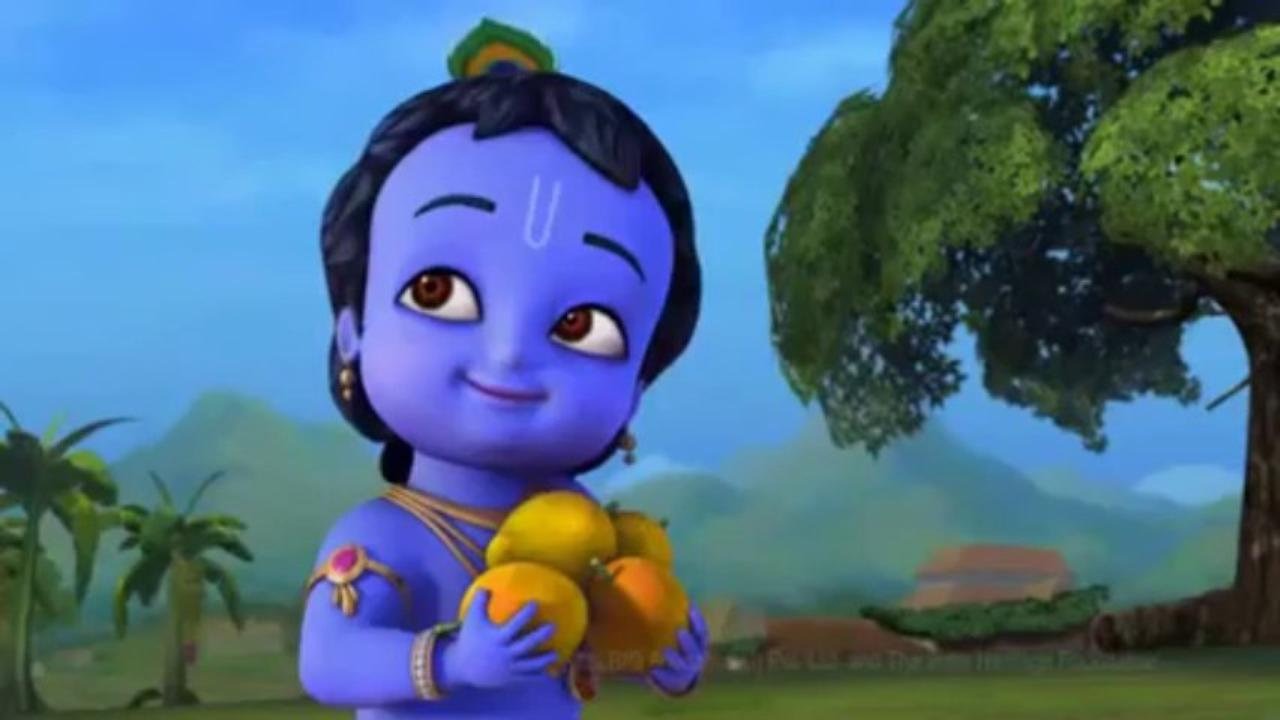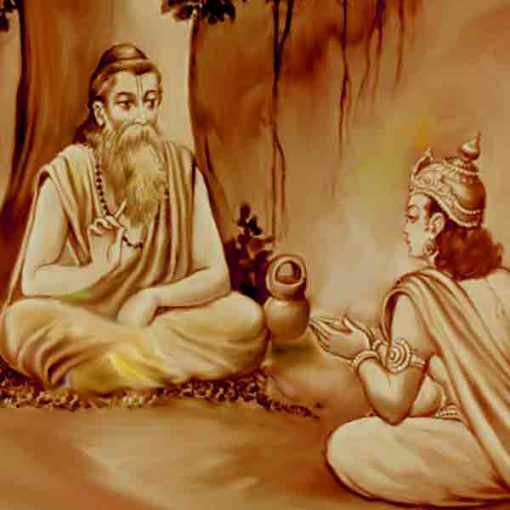Krishna personally appeared
There is a story of a brāhmaṇa who regularly studied Bhagavad-gītā. He was poor and lived with his wife in a small cottage. After daily studying Bhagavad-gita, he would go to beg and in this way maintain himself and his wife. As he read Bhagavad-gita one day he came across a verse in the Ninth Chapter where Lord Krishna says, yoga ksema vahamy aham.—“I will personally carry and deliver the needs of My devotees.” When he read this verse, he became puzzled and doubtful and thought, “How is it that Bhagavan personally carries and delivers the needs of His devotees? He may inspire someone to carry out the needs of the devotees, such as giving charity. But that Bhagavan personally delivers the needs seems impossible”.
Reading the verse again and again, the brāhmaṇa could not believe it so he crossed it out of the Bhagavad-gita with a red pen thinking it a mistake. Afterwards he went to perform his daily begging.
That day everyone offered him excuses rather than charity. Some said there was a death in the family, others that their children were sick, and thus they could not give alms that particular day.
Meanwhile back at the brāhmaṇa’s house, a young boy arrived and knocked on the door. The brāhmaṇa’s wife answered and was surprised to find him carrying such a big load on his back. It contained varieties of foodstuffs like rice, dhal, spices, oil, flour, and cooking utensils. The boy claimed to be a disciple of her husband who had sent him to deliver these goods to his house. The surprised wife told the boy that her husband had no disciples, so it was not possible that he had sent him with all these items. But the boy insisted repeating that her husband was his guru and had sent him to deliver these items to his house.
The boy further told her that her husband had become disturbed with him for carrying the load so slowly and had thus beat and scratched his back. Indeed he raised his cloth and showed the brāhmaṇa’s wife the marks on his back. She became surprised that her husband could be so cruel as to beat such a young and beautiful boy. She told him to sit inside the house so she could cook something and offer him some prasada.
Later that day the brāhmaṇa returned home from his begging attempt empty handed. He was resolved that he and his wife would have to fast and was feeling very dejected. As he came in the presence of his wife she immediately began scolding him for having made the young boy carry such a heavy load and then beating him for not being able to carry it swiftly. The brāhmaṇa was confused by his wife’s behavior and wondered what had happened to her. She had never before spoken to him like this and he had no idea of what she was talking about. He asked her to explain and she narrated what had transpired. She said that the boy was still in the house but when the brāhmaṇa searched for him he was no where to be found.
Later as he sat to read his Bhagavad-gita he found that the verse he had crossed out was again intact—the red ink was gone. He started weeping realizing that the young boy who had come was actually Krishna who had indeed come to his house to fulfill the pledge He made in the Bhagavad-gita—that He carries and delivers the needs of His devotees. The brāhmaṇa lamented that he was not as fortunate as his wife who had been able to see Krishna personally and he condemned himself for doubting the words of Bhagavad-gita.
As mentioned earlier, Krishna’s words are non different from Him, so the brāhmaṇa’s striking out the verse amounted to striking Krishna’s body. The scratches and blood on the boy’s back represented the red ink the brāhmaṇa had used to cross out the verse.
Lord Krishna says in the Gita:
yaḥ śāstra-vidhim utsṛjya, vartate kāma-kārataḥ
na sa siddhim avāpnoti, na sukhaṁ na parāṁ gatim
“He who discards scriptural injunctions and acts according to his own whims attains neither perfection, nor happiness, nor the supreme destination”.
The way of perfection in godly life or Krishna consciousness is to have firm faith in the words of the Supreme Lord and the authorized teachers.
Source: Gita Mahatmya – Folio Vedabase





